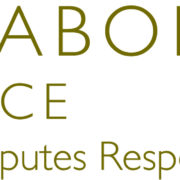What Is A Florida Parenting Plan?
Any Florida parent who is going through a divorce with children or otherwise dealing with child custody issues will need to have a parenting plan. A parenting plan is document that is either agreed upon by the parents or created by a judge that sets out each parents’ rights and responsibilities. The Sixth Judicial Circuit (Pinellas and Pasco Counties) further describes a parenting plan as follows:
It is the public policy of this state to assure that each minor child has frequent and continuing contact with both parents after the parents separate or the marriage of the parties is dissolved and to encourage parents to share the rights and responsibilities, and joys, of childrearing. Florida Statutes, section 61.13(2)(c).
A parenting plan is a document developed and agreed to by the parents of a minor child, and approved by the court, or if the parents cannot agree, established by the court, which governs the relationship between the parents regarding the child (encompassing “custody”, “parental responsibility”, and “visitation”). A parenting plan may address issues such as the child’s education, health care, and physical, social, and emotional well-being, and must include a time-sharing schedule. The parenting plan must take into account the Uniform Child Custody Jurisdiction and Enforcement Act, the International Child Abduction Remedies Act, the Parental Kidnapping Prevention Act, and the Hague Convention on the Civil Aspects of International Child Abduction when addressing jurisdictional issues.
For purposes of establishing or modifying parental responsibility and creating, developing, approving, or modifying a parenting plan, including a time-sharing schedule, which governs each parent’s relationship with his or her minor child and the relationship between each parent with regard to his or her minor child, the best interest of the child shall be the primary consideration.
Any parenting plan approved by a court must address the following issues:
• Details about how parents will share daily tasks associated with the upbringing of the child;
• Time-sharing schedule that will specify the time the child will spend with each parent;
• Designation of who will be responsible for health care, school-related matters, and other activities; and
• Methods and technologies parents will use to communicate with each other and with the child.
• File a Uniform Child Custody Jurisdiction and Enforcement Act (UCCJEA) formTime-sharing schedule means a timetable that must be included in the parenting plan that specifies the time, including overnights and holidays that a minor child will spend with each parent. If developed and agreed to by the parents of a minor child, it must be approved by the court. If the parents cannot agree, the schedule shall be established by the court. See Florida Statutes, Section 61.046(22).
It is becoming the opinion of more judges, attorneys, psychologists, and therapists that the best way to establish a parenting plan is via the collaborative process. Collaborative family law is a form of private dispute resolution where the parties agree that they will not let important decisions concerning their children be decided by a judge; rather, they will meet in a series of meetings to form their own parenting plan. Each party is represented by his and her own collaborative attorney who has agreed not to engage in nasty litigation tactics. The process is managed by a facilitator, generally a mental health professional, who helps with co-parenting and communication skills and ensures that the parenting plan is personally tailored to be in the best interests of the clients’ children.
If you have questions regarding parenting plans or the collaborative process, schedule a consultation with The Law Firm of Adam B. Cordover, P.A., at (813) 443-0615 or fill out our contact form.
Adam B. Cordover is president of Next Generation Divorce, a group of approximately 70 attorneys, financial professionals, and mental health professionals dedicated to helping families resolve family law issues in a private, respectful process.





Leave a Reply
Want to join the discussion?Feel free to contribute!